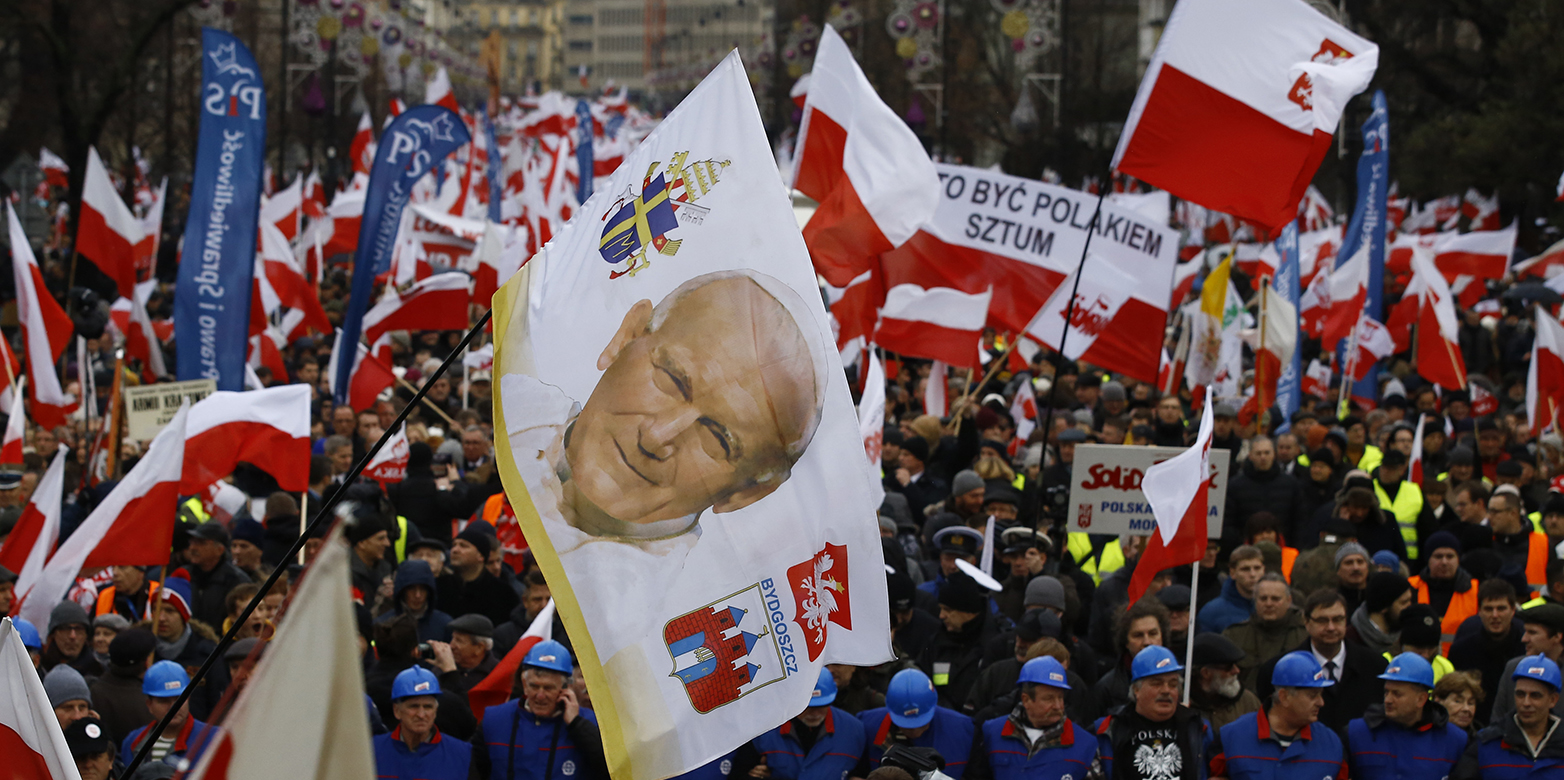The Instrumentalization of Religion in Conflict
Peacebuilders and policy-makers often accuse political elites of exploiting religion in conflicts for the purpose of achieving political objectives. In this CSS Policy Perspective, Jean-Nicolas Bitter and Owen Frazer argue that diagnoses of the presence of religion in conflict contexts as ‘instrumentalization’ may create a barriers to conflict transformation.

Supporters of the Law and Justice party walk with a portrait of late Pope John Paul II during a pro-government demonstration in Warsaw, Poland, December 2015. Kacper Pempel/Reuters
Key Points
- While religion can shape conflicts in many ways, this does not necessarily mean that it is being instrumentalized.
- Since it is difficult to assess the motives of actors, peacebuilding practitioners and policy-makers can be wrong about whether actors are instrumentalizing religion and may therefore misdirect their responses.
- Even though instrumentalization does happen, third parties seeking to transform conflict and contribute to peace should suspend judge-ment about intentions and avoid using the term ‘instrumentalization.’
- Peacebuilders who accuse actors of instrumentalizing religion may struggle to engage with these actors. They also risk neglecting the genuine concerns of people who support the alleged ‘instrumentalizers.’
- Rather than judging others’ use of religion, practitioners and policy-makers should focus on whether their own engagement with religious actors occurs in a respectful way, and is based on jointly agreed actions